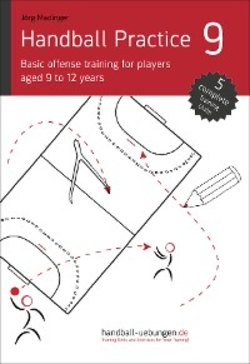Читать книгу Handball Practice 9 - Basic offense training for players aged 9 to 12 years - Jörg Madinger - Страница 5
3. Roles/tasks of the coach
ОглавлениеIt is mainly the personality and the behavior of the coach that makes the training a success. Therefore, it is important to observe certain behavioral rules to guarantee a successful training. The coach's social skills have an impact as important as his expertise. Especially when training youth teams, the coach serves as a role model and may influence the development of the young players.
A coach should:
- describe the training and its objectives to his team at the beginning of the training unit.
- always speak loud and clear.
- talk from such a position that all players can hear his instructions and corrections.
- recognize and correct mistakes and give advice when correcting.
- mainly correct what is part of the training objective.
- point out and compliment on individual progress (give the player self-confidence).
- support and permanently challenge the players.
- always be a role model – during training and games, but also outside the court.
- come to training and games well-prepared and in a timely manner.
Especially when training youth teams:
- The coach should react to different physical preconditions. This is especially important when training athletics. The difficulty level should always match the players' level of performance. For heterogeneous groups, you might have to present a less difficult version for physically weaker players.
- Motivate the players to hang in, even if they face certain difficulties in the beginning.
